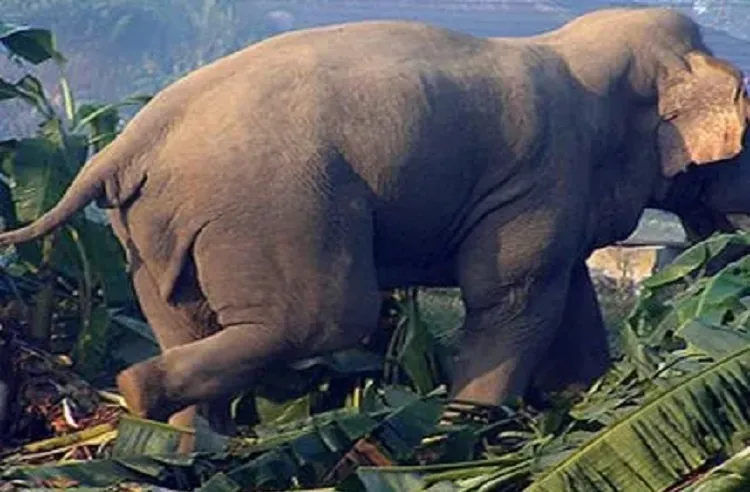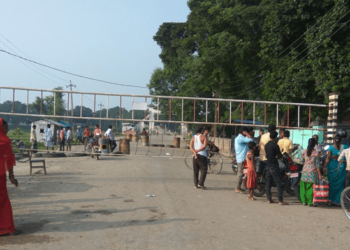JHAPA: The districts of Jhapa and Morang are witnessing a disturbing rise in conflict between humans and elephants, resulting in casualties on both sides.
Over the past two years, 12 individuals have lost their lives, and 13 have been injured in elephant attacks, while six elephants have also met a tragic end during the same period, as reported by the Division Forest Office in Jhapa.
Herds of elephants are increasingly encroaching upon settlements near forests in search of food. Efforts by locals to deter the pachyderms often escalate into dangerous confrontations, leading to loss of life in elephant attacks.
The conflict is not limited to specific activities; even morning walks and routine tasks like grass and fodder collection in the forest put people at risk.
Researchers specializing in elephants argue that the expansion of human settlements is gradually encroaching upon the elephants’ natural habitats, provoking their aggression. Shankar Luitel, a researcher, notes that over the last six decades, forests have significantly receded.
Luitel explains, “Elephants, with their sharp memory and desire for unrestricted movement, find it increasingly challenging with diminishing habitats. This frustration often leads to damage to human settlements.”
Arjun Karki, the Ward Chair of Mechinagar-4, acknowledges the complex situation and mentions the adoption of a policy of human-elephant coexistence to mitigate the conflict. He states, “Elephants are not inherently aggressive, but when they feel threatened in terms of habitat and food, retaliation is inevitable.”
According to Karki, the implementation of a human-wildlife coexistence policy in areas like Bahundangi, known for numerous human-elephant conflict cases, has been crucial in managing the challenges posed by these majestic creatures.
RSS









Comment